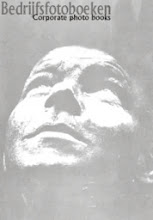
Traces of War by Jan Banning
Victory for the allied forces in the Pacific theatre of the Second World War will be celebrated in August, 60 years after the Japanese Emperor Hirohito conceded defeat. There will be among the celebrants a small, largely forgotten group who will once again have to relive their nightmares of the war in the Pacific.
Dutch, English, Australian and American POW s were among more than a quarter of a million Asians - so called romushas foced by the Japanese to work on railways in Burma and Sumatra. They worked in desperate conditions. Between 50 and 80 per cent of the romushas did not survive the regime, not least as a result of being torpedoed in transit. The sinking of the Junyo Maru, for instance, resulted in the deaths of 4000 romushas and 1500 prisoners of war.
Traces of War the Dutch photographer Jan Banning has interviewed and photographed just 24 of the Dutch and Indonesian survivors. The haunting images show them as they worked, naked from the waist up. The words elicit, with a matter-of-fact disinterest, the misery of their constant understanding of death. Unsurprisingly, after their experiences, they have hitherto been loath to discuss their ordeals.
Banning s Dutch publication of Traces of War has all but sold out. Trolley presents the English language version for the many thousands of relatives and children, and the few survivors, who want to know the truths of what happened in Burma and Sumatra.
Jan Banning was born in Almelo, Holland, in 1954, of Dutch-East-Indies parents. At university he studied social and economic history, and has been a photographer since 1981, concentrating on reportage. Lees verder `Ik heb altijd mijn klewang nog' ...

















Geen opmerkingen:
Een reactie posten